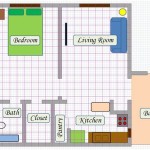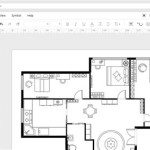How To Get A Flooring License In Florida
Obtaining a flooring license in Florida necessitates navigating a specific set of requirements established by the Florida Department of Business and Professional Regulation (DBPR). This process ensures that individuals and businesses performing flooring work possess the necessary knowledge, skills, and financial stability to operate responsibly and ethically. This article provides a comprehensive guide to the steps involved in acquiring a flooring license in Florida, outlining the various license types, eligibility criteria, examination requirements, and other pertinent information.
The primary objective of licensing is to protect consumers by ensuring that flooring contractors are competent and accountable. Unlicensed work can lead to substandard installations, financial losses for homeowners, and potential safety hazards. The Florida DBPR actively enforces licensing regulations to prevent unlicensed activity and maintain the integrity of the construction industry.
Before embarking on the licensing journey, it is crucial to determine the specific type of flooring license that aligns with the intended scope of work. Florida offers various contractor licenses, some of which may encompass flooring, while others are more specialized. Understanding the distinctions between these licenses is paramount for a successful application.
Identifying the Appropriate Flooring License
Florida does not offer a specific, standalone “flooring license.” Instead, flooring work falls under the purview of various contractor licenses depending on the nature and scope of the project. The most relevant licenses for individuals or businesses primarily engaged in flooring work are the General Contractor, Building Contractor, and Residential Contractor licenses. Additionally, a specialty contractor license, specifically a flooring contractor specialty, may be applicable in certain situations.
A General Contractor license (typically a Class A license) allows the holder to construct, repair, remodel, or demolish any structure, provided they possess the requisite expertise. This license is the most comprehensive and permits a wide range of construction activities, including flooring installation, regardless of project size or complexity. It is often suitable for contractors managing large-scale projects that involve multiple trades and disciplines.
A Building Contractor license (typically a Class B license) is more restricted than a General Contractor license. It allows the holder to construct, repair, remodel, or demolish commercial and residential structures with up to three stories in height. However, it may require a General Contractor license for projects involving certain types of structural components. This license is suitable for contractors working on smaller commercial buildings or multi-family residential projects that do not exceed three stories.
A Residential Contractor license allows the holder to construct, repair, remodel, or demolish one-family, two-family, or three-family residences not exceeding two stories in height and accessory use structures in connection with such residences. This license is well-suited for contractors primarily focused on residential flooring installations in single-family homes, duplexes, and triplexes.
A Specialty Contractor license allows the holder to perform specific types of construction work, such as flooring, roofing, or plumbing. While a general specialty contractor license is possible, it's essential to verify if a specific flooring specialty exists and whether it's the most suitable option. Obtaining a specialty contractor license typically involves demonstrating expertise in that particular trade through experience and examination.
The choice of license hinges on the anticipated scope of work. If the intention is to undertake large-scale construction projects encompassing various trades, a General Contractor license is often the most appropriate. If the focus is solely on residential flooring installations, a Residential Contractor license may suffice. Consulting with the DBPR or a construction attorney can provide clarity in determining the most suitable license category.
Meeting the Eligibility Requirements
Regardless of the specific license type sought, all applicants must meet certain eligibility requirements established by the DBPR. These requirements typically pertain to age, education, experience, financial stability, and moral character. Failing to meet any of these requirements can result in the denial of the license application.
Applicants must be at least 18 years of age. Demonstrating proof of identity, such as a driver's license or passport, is typically required as part of the application process.
Educational requirements vary depending on the license type. For a General Contractor license, a four-year degree in building construction, engineering, or a related field is generally required, or equivalent experience, which is usually proven through extensive relevant work experience. A Building Contractor or Residential Contractor license may require a combination of education and experience. The specific requirements are outlined in the relevant statutes and rules governing each license category. Submitting transcripts or other documentation to verify educational attainment is necessary.
Applicants must demonstrate sufficient experience in the construction industry to qualify for licensure. The required amount of experience varies depending on the license type. For a General Contractor license, several years of progressively responsible experience in the construction industry are typically required. This experience must be documented and verifiable. Providing detailed work histories, including job descriptions, project details, and contact information for previous employers, is essential. Verifying the experience through sworn statements from supervisors or clients may also be necessary.
Applicants must demonstrate financial stability by providing evidence of sufficient financial resources to maintain business operations and fulfill contractual obligations. This typically involves submitting a financial statement prepared by a certified public accountant (CPA). The financial statement must demonstrate that the applicant meets the minimum net worth requirements established by the DBPR. Obtaining a surety bond may also be required, providing financial protection to consumers in the event of contractor default.
Applicants must undergo a background check to assess their moral character. This involves submitting fingerprints and authorizing the DBPR to conduct a criminal history check. Any criminal convictions or other adverse findings may impact the applicant's eligibility for licensure. The DBPR will consider the nature and severity of the offense, the length of time since the offense occurred, and any evidence of rehabilitation when evaluating the applicant's moral character. Applicants with prior criminal records should seek legal counsel to assess the potential impact on their license application.
Navigating the Examination and Application Process
Once the eligibility requirements are met, applicants must pass a series of examinations to demonstrate their knowledge and competency in the construction industry. The specific examinations required vary depending on the license type. The examinations typically cover topics such as building codes, construction management, contract law, and business practices. Passing the examinations is a critical step in the licensing process.
The examinations are administered by a third-party testing company contracted by the DBPR. Applicants must register for the examinations and pay the required fees. Preparing for the examinations is essential to ensure success. Many resources are available to assist applicants in their preparation, including study guides, practice exams, and review courses. Utilizing these resources can significantly increase the chances of passing the examinations.
After passing the examinations, applicants must complete and submit a formal license application to the DBPR. The application requires detailed information about the applicant's qualifications, experience, and financial condition. All supporting documentation, such as transcripts, financial statements, and letters of reference, must be included with the application. Ensuring that the application is complete and accurate is crucial to avoid delays in processing.
The DBPR reviews each license application carefully to ensure that all requirements are met. The review process may involve verifying the applicant's experience, conducting background checks, and reviewing financial statements. The DBPR may request additional information from the applicant during the review process. Responding promptly and thoroughly to any requests for information can help expedite the application process.
Upon successful completion of the review process, the DBPR will issue the flooring license. The license is valid for a specified period and must be renewed periodically. Continuing education requirements may apply to maintain the license in good standing. Adhering to all applicable laws and regulations governing the construction industry is essential. Violating these laws and regulations can result in disciplinary action, including suspension or revocation of the license.
In addition to the state licensing requirements, local jurisdictions may have their own licensing or permitting requirements for flooring contractors. It is essential to check with local authorities to ensure compliance with all applicable regulations. Obtaining all necessary permits before commencing work and complying with all building codes and safety standards are crucial for avoiding legal issues and ensuring the safety of workers and the public.
The information provided in this article is intended for general guidance only and does not constitute legal advice. Applicants should consult with the DBPR or a construction attorney for specific advice regarding their individual circumstances. The laws and regulations governing contractor licensing are subject to change, so it is essential to stay informed of any updates or revisions. Seeking professional guidance can help ensure compliance with all applicable requirements and facilitate a smooth licensing process. Obtaining a flooring license in Florida requires careful planning, diligent preparation, and adherence to all applicable laws and regulations. By following the steps outlined in this article and seeking professional guidance when needed, individuals and businesses can successfully navigate the licensing process and establish a reputable flooring practice in Florida.

Changes To Licensing In Florida Seer Flooring

How To Become A Florida Flooring Contractor Youtube

Want To Get A Florida Contractors License Here S How

Avoiding Construction Defects In Flooring Installation A Guide For Florida Contractors Licenses Etc

1 Florida Contractor License Guide Digital Constructive

What Do I Need A Contractor S License For In Florida Clearwater General Answers

Florida Contractor Licensing Renewal Navigating The Journey Ahead Of August Deadline License Company Llc

Florida Remodel Contractor License Archives Licenses Etc

C 15 License Archives Licenses Etc

Florida General Contractor License Get Licensed To Work








